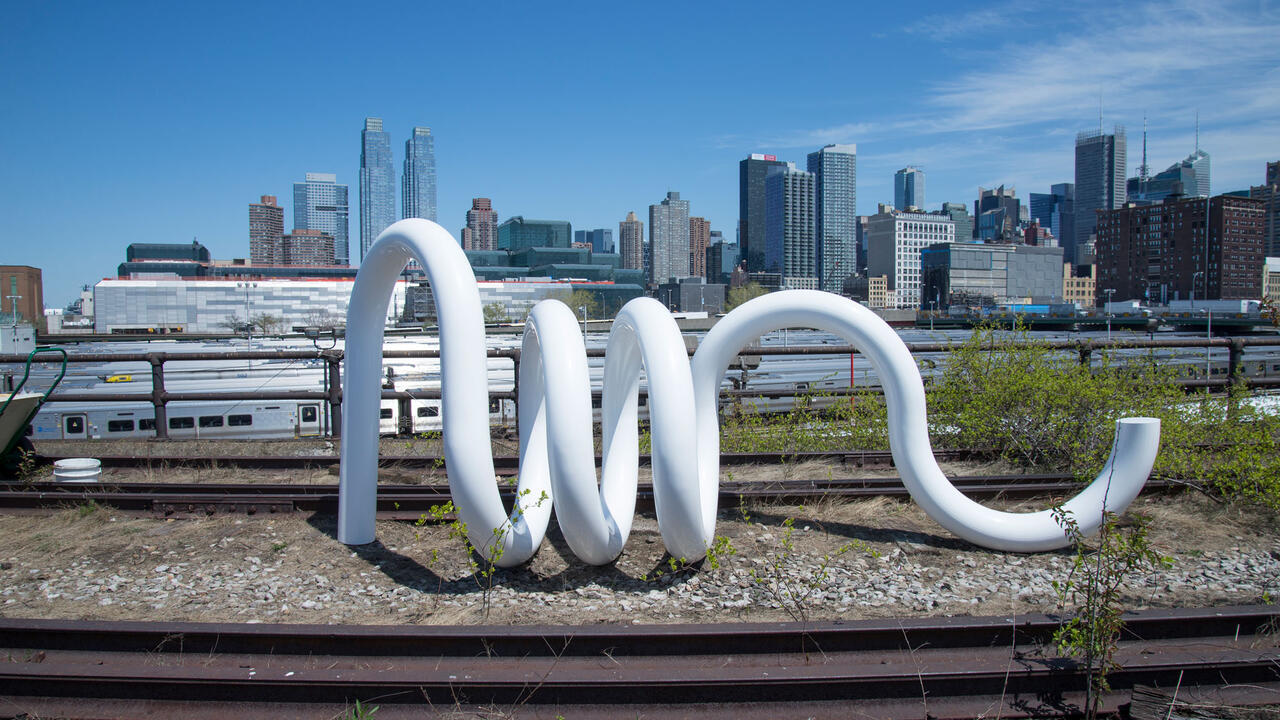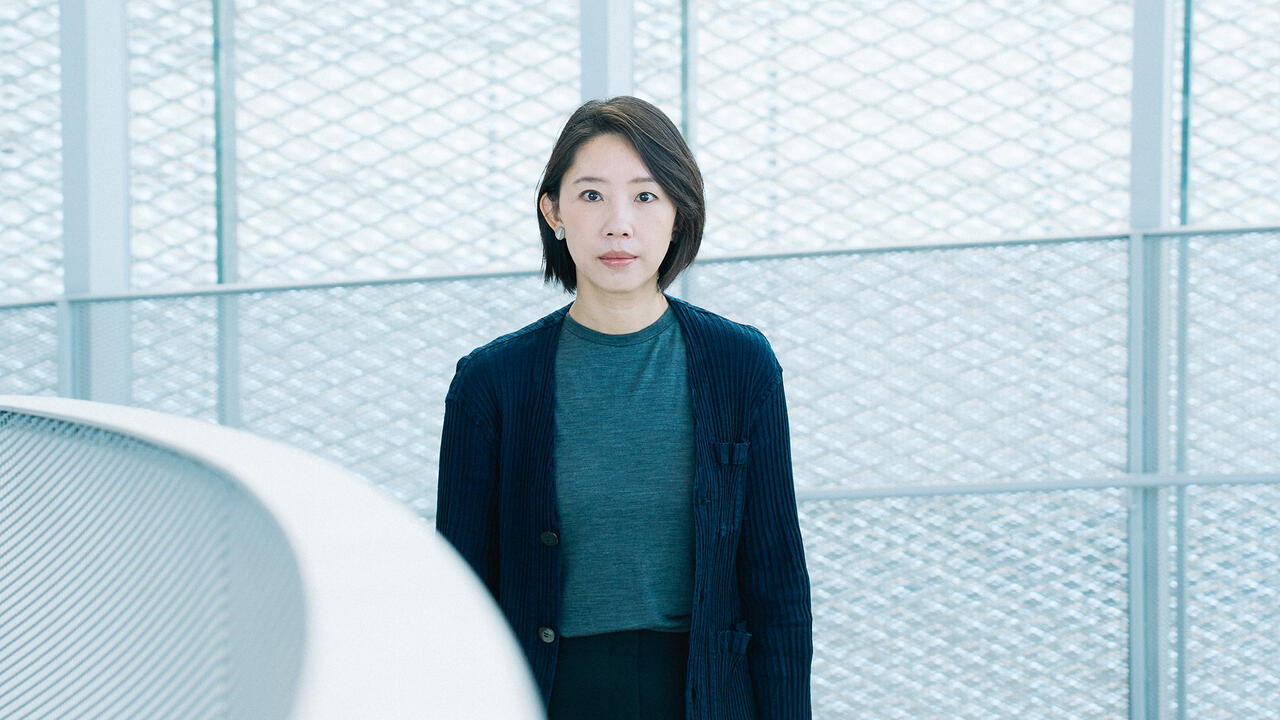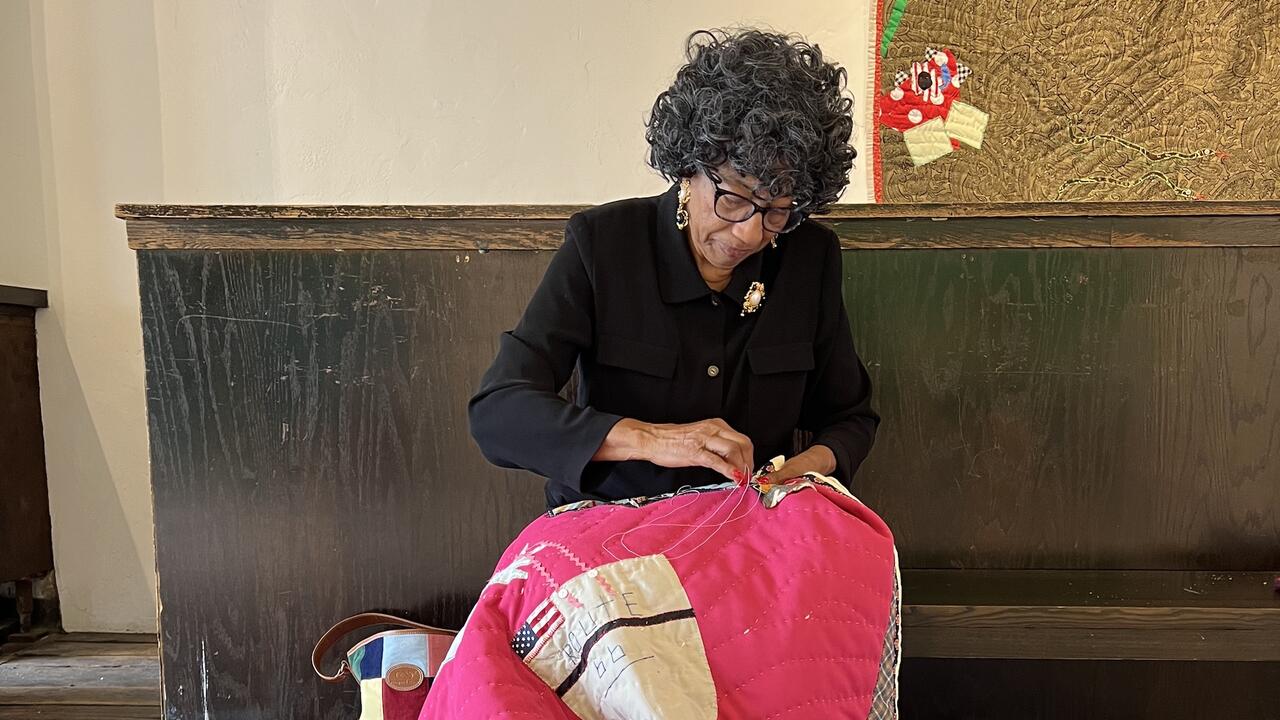Yvette Mutumba on Why Decolonizing Institutions ‘Has to Hurt’
Pablo Larios speaks with the Stedelijk Museum’s newly appointed curator-at-large about institutional accountability
Pablo Larios speaks with the Stedelijk Museum’s newly appointed curator-at-large about institutional accountability

In mid-June, as rallies for social and racial justice soared to a global tipping point in the wake of the murder of George Floyd, Amsterdam’s Stedelijk Museum swiftly announced plans to hire two curators-at-large: Yvette Mutumba, co-founder and editor-in-chief of the art magazines Contemporary And (C&) and Contemporary And América Latina (C&AL), and Adam Szymczyk, the artistic director of Documenta 14 (2017), with its critical stance towards the artistic legacy of European Enlightenment thinking.
When I spoke on the phone with the Stedelijk's director, Rein Wolfs, he told me that he wanted 'two people from different situations in Europe who can look with a distant view at the institution.' He added, 'it's not only about the exhibition programme, but about research and acquisition. I want my staff to be in discussion with Yvette and Adam, and I also want to be corrected by them.'
It turned out that the hires were long in process well before June – and the pandemic. ‘We were in conversation before the lockdown situation, but of course the George Floyd situation and the Black Lives Matter movement are something we as a museum are reacting to. It’s getting more urgent to take some action. Next year, we want to spend at least 50% of our acquisition budget on works by artists of colour or of a non-Western background’, he said, committing the museum’s acquisition in 2021 to a quantifiable target.
As arts institutions and corporations re-evaluate their programming and hiring, demonstrating solidarity with BLM-aligned movements (the Stedelijk stated a commitment to ‘fighting racism’), how much of this is window-dressing, and how much is meaningful? How much of this will last? What follows is the first of two interviews that seek to understand institutional accountability and inclusivity in a moment of change. Look out for the second with Adam Szymczyk.
– Pablo Larios
Pablo Larios: In 2018, when you co-curated the 10th Berlin Biennale, you wrote: ‘decolonization has to hurt’. What does the task of decolonization mean for you, as a curator and editor?
Yvette Mutumba: What follows only begins to touch on a matter of decades of thinking, working, experiencing, talking and growing.
Decolonization means that I will not do the job of those sitting inside institutions and organizations that are predominantly white. To me it means having conversations which create serious exchange, but also discomfort, maybe even pain, on the other side of the table. It means having to sit with that discomfort. It means understanding that decolonization is not a matter of ‘us’ and ‘them’, but concerns all of us. It means acknowledging that this is not a current moment or trend. It means recognizing that BIPoC/BAME/POC are not necessarily particularly ‘political’: we simply do not have the choice to not be political. It means admitting that having grown up in a racist structure is no excuse.

Organising an exhibition, conference, panel or performance on ‘decolonization’ and then moving on to ‘the next topic’ is not enough. As is not throwing around and overusing such notions until they lose their meaning.
Decolonization means transparency from the institutional side. This includes re-centring.
This includes giving up power and re-distributing resources. This includes listening instead of talking. But careful here, as political scientist Nikita Dhawan has put it: ‘Just because somebody speaks it does not mean that they are listened to.’ This includes no – mostly uncompensated – brain-drain of BIPoC. This includes stepping back and making space. This includes creating safe spaces.
Decolonization means changing structures as much as building new structures. Very important here: it also means focusing on ourselves (BIPoC), our interests, thoughts and sensitivities without constantly considering what is not done, not acknowledged and not created.
PL: Tell me about your magazines Contemporary And (C&) and Contemporary América Latina (C&AL), which you co-founded.
YM: Contemporary And (C&) was created in 2013 as an online art magazine and a dynamic space for the reflection on and linking together of ideas and discourse on contemporary visual art from Africa and the Global Diaspora. In 2018, Contemporary And América Latina (C& AL) began to provide more space for the important connections between Latin America, the Caribbean and Africa. C& and C&AL weekly publish new content in English, French, Spanish and Portuguese. All the content is written by a global, constantly growing network of art writers.
The reason to launch C& was to start a platform that creates, connects and acknowledges the immense and amazing work of cultural producers living and working in Africa and the Global Diaspora. It is very important for us that this happens in an accessible, non-academic format, so that the content is also manageable for non-art experts and non-academics. We strongly believe that complex content can be mediated in a comprehensible way. While C& seemed to be a niche project in the beginning, it quickly became evident that it hit a nerve. Apart from a growing readership from Africa and the Global Diaspora, C& is being more and more embraced as an important source at a time when so-called ‘global’ art suddenly appeared on the ‘Western’ art world’s agenda. However, our work at C& is independent of the current hype and goes far beyond it. The nature of our work has always been and will always be this mission.

PL: What advice would you give to artists, writers and curators regarding ways to make existing artistic structures more equitable and accountable?
YM: Focus on your work. Do what you want to create. If it is not about identity or colonialism, but robotics, then that is also fine. Do not let ‘diversity’, ‘decolonization’ or ‘global art’ programmes pressure you into thinking that the only chance to get in is if you tackle all the things that seemingly and by default make you an expert. If you can afford it: Say no to opportunities if you feel that it will become a tokenistic experience. If you cannot afford it: Be confident enough to voice your concerns, demands and requirements. Because: too often we feel like we need all those institutions, organizations, galleries, etc. But, actually, especially in this very specific moment: they need us too.
PL: What do you plan to do as one of two curators-at-large recently hired by the Stedelijk?
YM: My appointment is one opportunity of many for the Stedelijk to take in input for overdue in-depth changes. It does not release the museum from additionally having to fundamentally transform their structures through a much more representative constitution of their staff, through finding a new language, and through staying true to the statements and plans they have started to announce. This includes that it needs to collaborate with local stakeholders who have been doing important work for decades by making them a sustainable and substantial part of the Stedelijk.

The museum has a responsibility towards the local context of Amsterdam and the Netherlands as well as an international context. Modern and contemporary art is, of course, as much global as local. Even though it is obvious, let’s put it out there again: the Dutch amassed their wealth by building a colonial empire. These abusive global connections made them rich enough to build institutions like the Stedelijk. It really is time to pay back. This includes acknowledging these connections and long-ignored narratives. For me, it is therefore about asking uncomfortable questions and to keep asking them. To make suggestions that do not divest the work that needs to be done from within the institution. To point at the blanks and to complicate them. To bring in connections and methods that are relevant to my practice and which have evolved over nearly two decades of work as an Afro-German art historian, curator and editor. Always with the requirement that these impulses become a sustainable part of the museum’s work, which includes asking questions and not only providing answers.
Yvette Mutumba is co-founder and editor-in-chief of the art magazines Contemporary And (C&) and Contemporary And América Latina (C&AL). She currently also lectures at the Institute for Art in Context, University of the Arts, Berlin, Germany. Mutumba was part of the curatorial team for the 10th Berlin Biennale for Contemporary Art (2018) and Visiting Professor for Global Discourses at the Academy of Media Arts Cologne, Germany (2017–18). From 2012 to 2016, she worked at the Weltkulturen Museum, Frankfurt am Main, Germany, where she co-curated the exhibitions 'Foreign Exchange (or the stories you wouldn't tell a stranger)' (2014–15), 'El Hadji Sy: Painting, Performance, Politics' (2015) and 'A Labour of Love' (2015–16; 2017, Johannesburg Art Gallery). Mutumba studied art history at Freie Universität Berlin and holts a PhD from Birbeck, University of London.
Main image: Grada Kilomba, Illusions Vol. II, Oedipus, 2018, installation view, 10th Berlin Biennale, KW Institute for Contemporary Art. Courtesy: the artist, Berlin Biennale and Goodman Gallery, Johannesburg/Cape Town; photograph: Timo Ohler





















